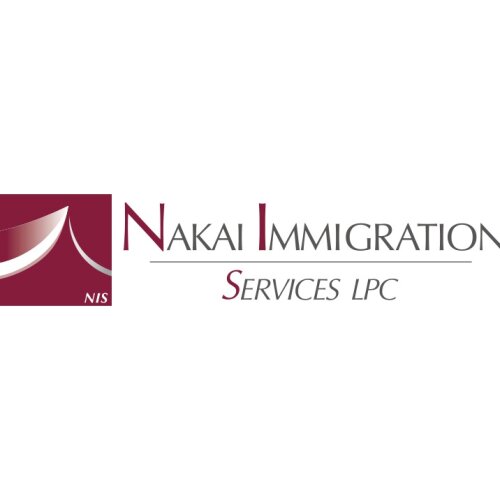Best Retirement Visa Lawyers in Tokyo
Share your needs with us, get contacted by law firms.
Free. Takes 2 min.
List of the best lawyers in Tokyo, Japan
About Retirement Visa Law in Tokyo, Japan
Unlike some countries that offer straightforward retirement visas, Japan does not have a specific "retirement visa." Foreign nationals wishing to retire in Japan typically have to explore other visa options such as the Long-Term Resident Visa, Spouse or Child of a Japanese National Visa, or Investor/Business Manager Visa. Understanding which category might fit your situation, including the criteria and documentation needed, is essential for a smooth application process. It is also crucial to stay updated with immigration policies as they could change over time.
Why You May Need a Lawyer
There are several reasons why you may require legal assistance when seeking a retirement visa in Tokyo, Japan. A lawyer can help you navigate the complexities of Japanese immigration law, which can be daunting due to language barriers and legal intricacies. For those who need to tailor their business activities to qualify for a visa, legal advice can prove invaluable. Additionally, should there be any changes in your circumstances-such as marriage or health issues-a lawyer can assist with the necessary legal adjustments to your visa status. In cases of visa rejections, they can also represent you in appeals or prepare alternate legal strategies.
Local Laws Overview
The local laws in Tokyo regarding foreign nationals seeking long-term residency primarily hinge on immigration control regulations. These include proving a stable income sufficient for a self-sustaining living in Japan, health insurance coverage, and a clean criminal record. Legal residents are also expected to contribute to national taxes and medical insurance schemes. Understanding the nuances of these requirements, alongside the specifics of the different visa categories, can heavily influence a successful application. Additionally, applicants often need to demonstrate a degree of cultural and language acclimatization conductive to living in Tokyo.
Frequently Asked Questions
Can I apply for a retirement visa in Japan?
Japan does not offer a specific "retirement visa." However, there are alternative visa routes for those wishing to retire in Japan, such as long-term resident permits or business management visas.
What are the financial requirements for living in Tokyo on a visa?
The financial requirement varies depending on the visa type. However, showing proof of sufficient income or financial savings that ensure a stable living without work is generally necessary.
Is health insurance mandatory for long-term visas in Japan?
Yes, obtaining national health insurance is a requirement for those living long-term in Japan, ensuring healthcare access remains affordable during your stay.
Can my spouse be included in my visa application?
Generally, dependents such as a spouse or a minor child can apply for a Dependents Visa, contingent on the primary applicant's visa status.
What are some common reasons for visa rejections?
Common reasons include insufficient financial proof, incomplete documentation, past criminal records, or failing to demonstrate a connection to Japan that justifies the visa issuance.
Do I need to renounce my citizenship to retire in Japan?
No, obtaining a long-term visa does not require you to renounce your citizenship. However, naturalization in Japan does, and it involves a separate, more stringent process.
How long can I stay in Japan on a long-term visa?
The duration generally varies from one to several years, depending on the visa type, and typically needs periodic renewal.
Is it necessary to learn Japanese to get a retirement visa?
While not mandatory, having a basic understanding of Japanese can benefit visa consideration and facilitate smoother cultural integration.
Can I own property in Japan under a retirement visa?
Foreigners can own property in Japan without needing special visas. However, property ownership does not directly impact visa eligibility.
What should I do if my visa application is denied?
If denied, consulting with an immigration lawyer to understand the reasons for rejection and devise a strategy for re-application or appeal is advisable.
Additional Resources
For more information, consider reaching out to the Immigration Services Agency of Japan, embassies, or consulates for official guidelines. Organizations like the Japan External Trade Organization (JETRO) may also offer valuable insights, particularly for those pursuing business-related visas. Legal associations often provide resources for finding qualified immigration lawyers specializing in Japanese visas.
Next Steps
Begin by gathering all necessary documentation related to your chosen visa category. Consult with an immigration lawyer to evaluate your eligibility and ensure all paperwork is in order. A lawyer can also provide guidance on how to proceed with your application and represent you in interactions with Japanese authorities. Finally, stay informed about any changes in immigration policy or visa requirements that could affect your plans.
Lawzana helps you find the best lawyers and law firms in Tokyo through a curated and pre-screened list of qualified legal professionals. Our platform offers rankings and detailed profiles of attorneys and law firms, allowing you to compare based on practice areas, including Retirement Visa, experience, and client feedback.
Each profile includes a description of the firm's areas of practice, client reviews, team members and partners, year of establishment, spoken languages, office locations, contact information, social media presence, and any published articles or resources. Most firms on our platform speak English and are experienced in both local and international legal matters.
Get a quote from top-rated law firms in Tokyo, Japan — quickly, securely, and without unnecessary hassle.
Disclaimer:
The information provided on this page is for general informational purposes only and does not constitute legal advice. While we strive to ensure the accuracy and relevance of the content, legal information may change over time, and interpretations of the law can vary. You should always consult with a qualified legal professional for advice specific to your situation.
We disclaim all liability for actions taken or not taken based on the content of this page. If you believe any information is incorrect or outdated, please contact us, and we will review and update it where appropriate.











